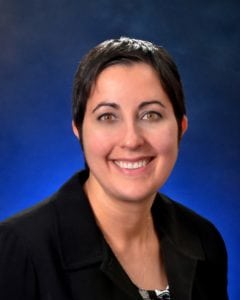On May 31, I participated in a special panel entitled “Breaking Down Barriers: The Importance of Jewish Hospital in Louisville’s History.”
This theme led to our being invited to participate in the “Throwback Thursday” Pegasus Parade this past year, celebrating the historic contributions of Jewish Hospital, and indeed, the Jewish community, greater Louisville.
This panel was part of a larger series, “Louisville History through a Jewish Lens,” held at the Filson Historical Society and sponsored by the Jewish Heritage Fund for Excellence.
We should be proud of the role Jews have played in the development of this wonderful city. It is moving to recall Jewish Hospital’s sacred legacy as it approaches a new chapter in its existence.
Certainly, there can be concern, as we approach the unknown, but there is also great hope, and the recognition that the future of Jewish Hospital lies, not only with its new owners, but in the ways in which the Jewish community embraces it and supports it.
For myself, this truth has defined my past four years of service as vice president of mission, at Jewish Hospital and within KentuckyOne Health and Catholic Health Initiatives.
This role is unique to Catholic health care. As the sisters who ran the Catholic hospitals came to realize, hospital administration was increasingly complex, necessitating the hiring of experts to the leadership team to navigate the challenges of our ever-changing health care environment.
So the role of vice president of mission emerged to serve as a strategic thought partner to the president and senior leadership team, and to ensure the integration of the legacy and mission of the hospital in all areas, including daily operations, spiritual care, ethics, employee relations, education, community outreach, policy and advocacy, fundraising, marketing, patient experience, as well as ensuring that the mission and historic values of the hospital are integrated into the long-term planning of the organization.
I am proud to be the first Jewish vice president of mission. I have felt blessed by this opportunity, as well as the ways in which Catholic Health Initiatives has embraced my input and feedback. While Jewish Hospital may be less “culturally” Jewish, in that staff and patients are not predominantly Jewish, I believe we have become more Jewish over the years. We have kosher food for our patients, staff and visitors. We have updated our Jewish chapel, making it wheelchair accessible.
We also play a critical role within the state, championing and caring for the sickest patients and serving as a safety net for the most disenfranchised. Our commitment to care for all people, including the underserved, and our continued commitment to tikkun olam (healing the world through social justice) guides everything that we do.
I could go on, but one of the things that most touches my heart is the spiritual keruv (outreach and education) that I do. Frequently, I am told by a non-Jewish staff member how they had never understood a certain Jewish practice or belief until I explained it.
One of my responsibilities is to preserve the Jewishness of Jewish Hospital, within our larger blended interfaith family. I help it articulate and expand its understanding of how the hospital is to remain Jewish in an era where Jewish doctors are not excluded from other medical centers, and Jewish patients may get their religious needs met at any hospital. With organizations like Jewish Family & Career Services and The J, as well as the Jewish Heritage Fund for Excellence, we have redefined what it means to live our Jewish values in an increasingly pluralistic society.
Our focus on tikkun is one important way that we do this. When a non-Jew who doesn’t understand Judaism interacts with us, and receives help and support, healing and miracles, through a Jewish organization, we are changing perceptions. We are fighting anti-Semitism, while creating a new and valuable expression of Judaism for our next generation.
Every Friday, I send out a reflection on the Torah portion of the week to all the employees at Jewish Hospital, Frazier Rehab, Jewish Hospital Shelbyville and the ambulatory centers and medical group staff. These reflections are then shared with many people across Catholic Health Initiatives. Many of these individuals then forward my reflections to others that they know, who reach out to me, asking to be put on my blind copy list (if you would like this, contact me at nadiasiritsky@kentuckyonehealth.org).
I am always touched by the responses from staff members who save my emails for days that are difficult, staff members who are surprised that rabbinic commentary on biblical text can be meaningful to them as non-Jews, pastors from around the country who let me know that they quoted me in their sermons.
For our local Jewish organizations that are living out our values and historic legacy in a world that is increasingly integrated and pluralistic, we have a historic new opportunity to grow new branches on the tree of life that we call Torah. How we create Torah from the events of our lives is what ultimately defines us. There are challenges and opportunities whenever things change, but I believe that facing the unknown with hope and faith can help us make the most of every opportunity. Together, may we be blessed, as we have been a blessing, and will continue to be a blessing to all those we encounter.
(Rabbi Nadia Siritsky is vice president of mission at KentuckyOne Health.)



